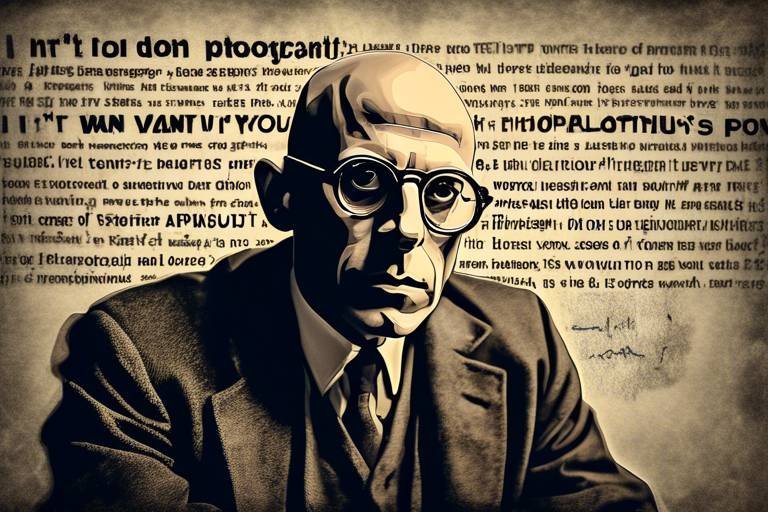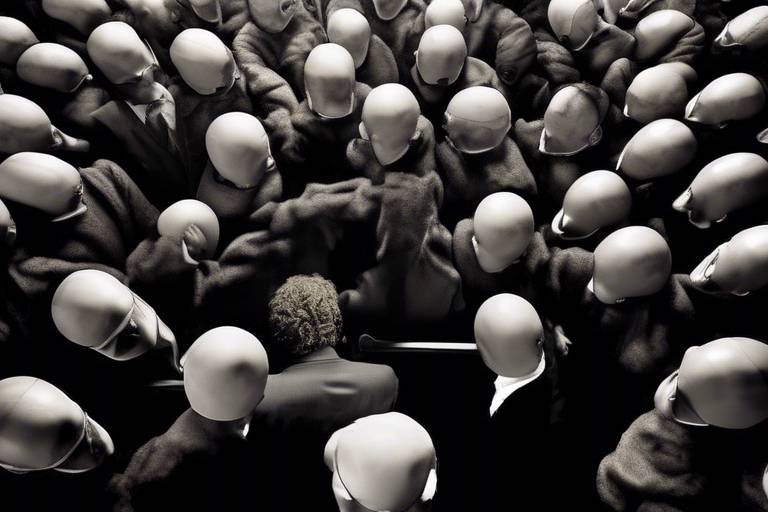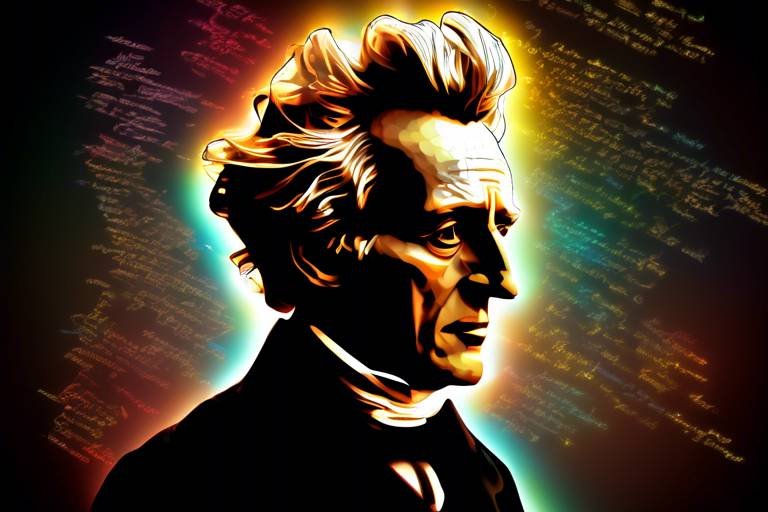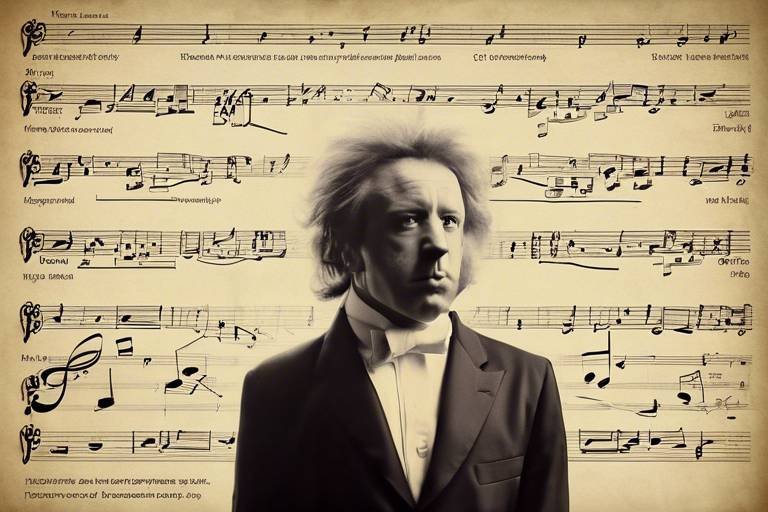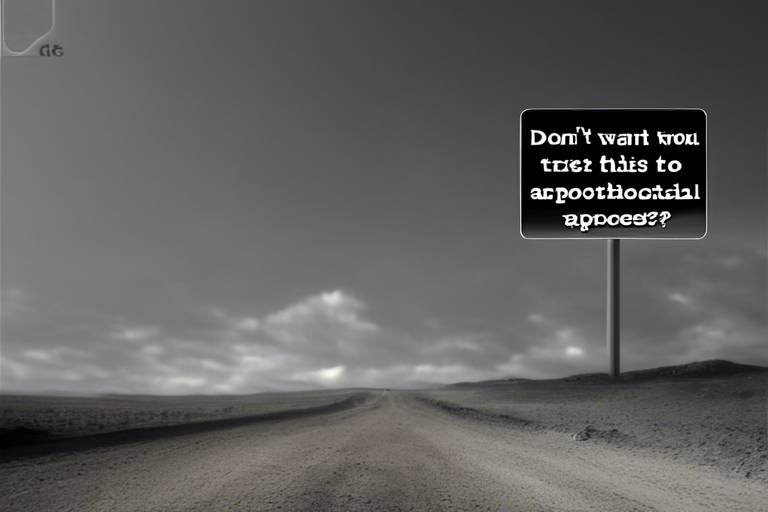Foucault's View of Power: A Philosophical Evaluation
Michel Foucault, a French philosopher and social theorist, revolutionized our understanding of power through his intricate analyses and thought-provoking theories. At first glance, one might think of power as something that is merely held by those in authority, like a king or a government. However, Foucault challenges this traditional notion by presenting power as a dynamic and multifaceted network of relationships that permeate every aspect of society. His ideas invite us to reconsider how we perceive authority, governance, and even our own roles within the societal framework.
In Foucault's view, power is not simply repressive; it is productive. It shapes identities, norms, and societal roles, influencing how individuals behave and interact with one another. This perspective encourages us to look beyond the obvious structures of power, such as laws and institutions, and to examine the subtler ways in which power operates in our daily lives. For instance, consider how societal expectations regarding gender roles guide behavior and shape personal identities. In this way, power is not just something that is imposed on us; it is something that we actively participate in and reproduce through our actions and beliefs.
Furthermore, Foucault's exploration of power extends into the realm of knowledge. He famously stated that knowledge is power, emphasizing that the production and dissemination of knowledge are deeply intertwined with power dynamics. This relationship raises critical questions about who gets to define what is considered "truth" and how this affects the structures of society. For example, educational institutions and media outlets often play significant roles in shaping public perception and understanding, thereby influencing power relations. The implications of this are profound as they challenge us to think critically about the sources of our knowledge and the power they wield.
One of the most compelling aspects of Foucault's philosophy is his assertion that where there is power, there is also resistance. This notion highlights the dynamic interplay between power and agency. Individuals and groups continuously challenge and negotiate power structures, asserting their own identities and rights. This resistance can take many forms, from subtle acts of defiance to organized movements aimed at social change. It is this constant struggle that keeps power relations in flux, illustrating that power is not a static force but a living, breathing entity that evolves with society.
In contemporary discourse, Foucault's insights remain highly relevant as they provide a framework for understanding modern societal challenges. Issues such as systemic inequality, social justice, and the role of institutions in regulating behavior can all be examined through a Foucauldian lens. His theories invite us to remain vigilant and critical, urging us to question the accepted norms and practices that govern our lives. By doing so, we can better understand the complexities of power and its pervasive influence on our identities and interactions.
In summary, Foucault's view of power invites us to rethink traditional paradigms and to recognize the intricate web of relationships that shape our experiences. His ideas encourage a deeper exploration of how power operates not only in overt forms but also in subtle, everyday interactions. As we navigate our increasingly complex world, Foucault's philosophical evaluation of power offers invaluable insights, urging us to remain aware of the dynamics at play and to actively engage in the ongoing discourse surrounding authority, knowledge, and resistance.
- What is Foucault's main argument about power?
Foucault argues that power is not merely held by individuals or institutions but is a complex network of relationships that influences all aspects of society. - How does Foucault relate power to knowledge?
He asserts that knowledge is intertwined with power, meaning that the production of knowledge shapes societal structures and individual behaviors. - What does Foucault mean by resistance to power?
Foucault believes that resistance is inherent wherever power exists, as individuals and groups continuously challenge and negotiate power structures. - Why are Foucault's ideas relevant today?
His insights provide a framework for understanding contemporary issues such as social justice, inequality, and the role of institutions in regulating behavior.

Understanding Foucault's Concept of Power
Michel Foucault's perspective on power is nothing short of revolutionary. Rather than viewing power as a static force wielded by a single entity—like a king or a government—Foucault reimagines it as a dynamic network of relationships. This approach challenges traditional notions of authority and governance, suggesting that power is everywhere, embedded in the very fabric of social interactions. Think of power as a web, intricately woven through various institutions, discourses, and practices rather than a single thread that can be pulled or cut.
At the heart of Foucault's theory is the idea that power is not merely repressive; it is also productive. This means that power shapes identities, norms, and societal roles. For example, consider how educational systems regulate behavior and expectations. They don’t just enforce rules; they actively create the very notion of what it means to be a 'good student' or a 'successful individual'. In this sense, power is not just something that is imposed from above; it is something that is lived and experienced in everyday life.
Foucault also emphasizes that power operates through discursive formations. These are frameworks of understanding that dictate how we perceive reality and construct knowledge. For instance, the discourse surrounding mental health has evolved significantly over the years. In the past, mental illness was often stigmatized and misunderstood. Today, however, it is framed within a medical discourse that seeks to normalize and treat rather than punish. This shift illustrates how power can influence societal attitudes and behaviors, reshaping our understanding of what is 'normal' or 'abnormal'.
Moreover, Foucault argues that power is intimately connected to knowledge. His famous assertion that "knowledge is power" underscores the idea that what we know—and how we come to know it—shapes our realities. Knowledge production is not neutral; it is deeply intertwined with power relations. Institutions such as schools, universities, and media outlets play a pivotal role in this process, determining which knowledge is valued and which is marginalized. This relationship creates a hierarchy of knowledge that can perpetuate existing power structures.
In summary, Foucault's concept of power challenges us to rethink our understanding of authority and governance. It invites us to see power as a pervasive force that shapes our identities, behaviors, and social norms. By recognizing the complex interplay between power and knowledge, we can better understand the mechanisms that govern our lives and the societal structures that influence our actions.

The Relationship Between Power and Knowledge
When we delve into Foucault's philosophy, one of the most striking assertions he makes is that knowledge is power. This idea flips the traditional view of power on its head, suggesting that power isn’t merely a top-down imposition but is intricately linked to the production and dissemination of knowledge. Imagine a web, where each strand represents a different type of knowledge—scientific, historical, cultural—and how these strands interweave to create a rich tapestry of societal norms and expectations. In this sense, knowledge becomes a vehicle through which power operates, shaping not only institutions but also individual behavior.
Foucault's perspective encourages us to consider how knowledge is not just a collection of facts but a powerful tool that can shape reality. For instance, think about how medical knowledge has evolved over the years. What was once considered a norm, such as the treatment of mental illness, has undergone significant changes based on new understandings and discoveries. This evolution illustrates how knowledge production can redefine societal standards and influence the power dynamics at play within those fields. It’s a dance between what we know and how we act, where knowledge can both empower and constrain.
Furthermore, Foucault introduces the concept of discursive formations, which refers to the frameworks through which we understand and interpret our reality. These discourses are not just academic; they permeate everyday life, influencing everything from our language to our social interactions. For example, the discourse surrounding gender identity has transformed dramatically in recent years, leading to a broader acceptance and understanding of diverse identities. This shift highlights how knowledge impacts societal structures and individual behavior, revealing the power dynamics at play.
To further understand this relationship, it’s essential to explore discursive formations. These are systems of knowledge that dictate what is considered acceptable or true within a society. For instance, in the realm of education, the curriculum often reflects the dominant discourses of a given time, shaping students' perceptions and beliefs. The knowledge imparted in schools can either reinforce existing power structures or challenge them, depending on the perspectives included in the curriculum.
Foucault also discusses the idea of regimes of truth, which refers to the ways in which different societies establish what is considered true or valid knowledge. These regimes create a hierarchy of knowledge, where some forms are privileged over others. For example, in a scientific context, empirical evidence is often regarded as the highest form of truth, while anecdotal experiences may be dismissed. This hierarchy can have profound implications for power relations, as those who control the narrative around what constitutes knowledge can shape beliefs and practices within communities.
Another critical aspect of Foucault’s analysis is the concept of normalization. Societal standards often dictate what is deemed acceptable behavior, leading to a form of social control that can be both subtle and pervasive. Consider how beauty standards are portrayed in media; these images create a norm that many feel pressured to conform to, thus regulating behavior through societal expectations. This normalization process can restrict individual freedom, as people may feel compelled to adhere to these standards to be accepted.
In conclusion, the relationship between power and knowledge is a complex and dynamic interplay that shapes our understanding of the world. Foucault's insights compel us to recognize that knowledge is not neutral; it is a powerful force that can both empower and oppress. As we navigate contemporary issues, from social justice movements to debates over scientific truths, understanding this relationship is more critical than ever.
- What is Foucault's main argument about power? Foucault argues that power is not just a top-down force but is embedded in social relationships and is closely tied to knowledge.
- How does knowledge influence power dynamics? Knowledge shapes societal norms and expectations, influencing behavior and establishing hierarchies of truth.
- What are discursive formations? These are frameworks that define how we understand reality, influencing perceptions and beliefs within society.
- What does normalization mean in Foucault's theory? Normalization refers to the process by which societal standards regulate behavior, often leading to social control.

Discursive Formations
Michel Foucault's concept of is pivotal in understanding how power operates through language and social practices. At its core, a discursive formation refers to the way in which knowledge and meaning are constructed within specific contexts. It's like a set of lenses through which we view the world; these lenses shape our perceptions, beliefs, and ultimately, our behaviors. Imagine walking into a room wearing a pair of colored glasses—everything you see is tinted by those colors. Similarly, discourses influence our understanding of reality, often without us even realizing it.
Foucault argued that discourses are not merely ways of speaking about things but are also powerful mechanisms that create and regulate social norms. They dictate what is considered acceptable, normal, or true within a society. For instance, in various historical contexts, discourses surrounding mental health have shifted dramatically. In one era, those labeled as 'insane' were often marginalized and institutionalized, while in another, the discourse shifted towards understanding mental health as a spectrum that requires compassion and treatment. This evolution illustrates how discourses can serve to both empower and oppress individuals, depending on how they are framed.
To further illustrate the concept of discursive formations, consider the following key elements:
- Language as Power: Language is not just a tool for communication; it is a means of exerting power. The way we speak about certain topics can reinforce or challenge existing power structures.
- Social Practices: Discourses are embedded in social practices, meaning that they are enacted through everyday behaviors and institutions. Schools, media, and legal systems all play a role in shaping and maintaining these discourses.
- Historical Context: Discursive formations are not static; they evolve over time. Understanding the historical backdrop is crucial for analyzing how certain discourses come to dominate while others are marginalized.
Foucault's exploration of discursive formations leads us to consider the implications of these frameworks on individual identity and societal norms. When we internalize certain discourses, we often unconsciously align our beliefs and actions with them. This process can create a sense of conformity, where individuals may feel pressured to adhere to societal expectations without questioning their validity. In this way, discourses can act as a form of social control, subtly guiding behavior and thought.
Moreover, Foucault emphasized that discourses are not merely reflective of reality; they actively shape it. This transformative power of discourse underscores the importance of critically examining the narratives that dominate our societies. By questioning and challenging prevailing discourses, individuals can disrupt established power dynamics and foster alternative understandings of truth and identity.
In essence, Foucault's theory of discursive formations invites us to recognize the profound impact of language and social practices on our lives. It encourages us to be vigilant about the discourses we encounter and to consider how they shape our perceptions of ourselves and the world around us. By doing so, we can better navigate the complex interplay of power and knowledge in our contemporary society.
- What are discursive formations? Discursive formations are frameworks of knowledge and meaning that shape our understanding of reality and influence social norms and behaviors.
- How do discourses exert power? Discourses exert power by dictating what is considered acceptable or true, thus regulating individual and collective behavior.
- Can discourses change over time? Yes, discourses evolve with historical and cultural shifts, impacting how societies perceive various issues.
- Why is it important to analyze discourses? Analyzing discourses helps us identify and challenge power dynamics, leading to a more equitable understanding of truth and identity.

Regimes of Truth
In the intricate tapestry of Foucault's philosophy, the concept of emerges as a pivotal element that profoundly influences our understanding of power dynamics. Foucault posits that each society has its own set of accepted truths, which are not merely reflections of reality but rather constructs shaped by cultural, historical, and political contexts. These truths dictate what is considered knowledge and, consequently, what is deemed acceptable behavior within that society.
To illustrate, consider how different societies might define health or morality. In one culture, a particular lifestyle may be celebrated as a model of health, while in another, it could be viewed as deviant. This divergence in understanding highlights the role of regimes of truth in shaping societal norms and values. Foucault asserts that these regimes are not static; they evolve over time, often in response to shifts in power structures, technological advancements, and social movements.
Moreover, regimes of truth are closely tied to the mechanisms of power. They are produced and maintained through institutions, such as schools, media, and governmental bodies, which disseminate knowledge and establish what is regarded as legitimate. This creates a framework within which individuals operate, often unconsciously adhering to the truths propagated by these institutions. For instance, educational systems play a crucial role in shaping our understanding of history and science, thereby influencing our perceptions of reality.
Foucault's exploration of regimes of truth leads us to question the very nature of knowledge itself. Is knowledge an objective reality, or is it a subjective construct influenced by power relations? This inquiry opens up a fascinating dialogue about the interplay between power and knowledge, suggesting that what we accept as truth is often a reflection of who holds power at any given time. In this sense, truth becomes a battleground where various forces vie for dominance, shaping our beliefs and practices.
In conclusion, understanding regimes of truth is essential for grasping how power operates in society. By recognizing that truths are not universal but rather contingent on historical and social contexts, we can begin to challenge the dominant narratives that govern our lives. This critical awareness empowers us to question the status quo and seek alternative perspectives, fostering a more nuanced understanding of the world around us.
- What are regimes of truth?
Regimes of truth refer to the accepted norms and beliefs within a society that dictate what is considered knowledge and truth, shaped by cultural and political contexts. - How do regimes of truth relate to power?
Regimes of truth are maintained by power structures within society, such as institutions that disseminate knowledge and establish social norms. - Can truth change over time?
Yes, regimes of truth are not static; they evolve as societal values and power dynamics shift, reflecting changes in culture, politics, and technology. - Why is it important to question regimes of truth?
Questioning these regimes allows individuals to challenge dominant narratives, fostering critical thinking and promoting social change.

truth
This article explores Michel Foucault's unique perspective on power, analyzing its implications in society, knowledge, and individual behavior, while evaluating its relevance in contemporary philosophical discourse.
Foucault redefined power as a complex network of relationships rather than a fixed entity. This section delves into his theories and how they challenge traditional notions of authority and governance.
Foucault famously stated that knowledge is power. This segment examines how knowledge production influences societal structures and individual behavior, highlighting the interplay between epistemology and power dynamics.
Foucault introduced the idea of discourses as frameworks that shape our understanding of reality. Here, we analyze how these discursive formations contribute to the exercise of power in various contexts.
In Foucault's framework, the concept of is not a mere reflection of reality but rather a construct shaped by societal norms and power structures. He argued that different societies establish their own regimes of truth, which dictate what is accepted as true or false. These regimes are not static; they evolve over time and are influenced by historical contexts and power dynamics. For instance, consider how scientific knowledge has shifted dramatically over the centuries. What was once deemed 'truth' in the medical field, such as bloodletting, has been replaced by a more nuanced understanding of human health.
Foucault's analysis reveals that truth is closely tied to power. The entities that hold power—be it governments, educational institutions, or media—play a significant role in shaping our perceptions of truth. They create narratives that serve their interests, often marginalizing alternative viewpoints. This leads us to question: How much of what we accept as truth is actually a product of power relations? Are we merely puppets dancing to the tune of those in authority?
To illustrate this point, let’s look at the following table that summarizes key aspects of Foucault's concept of regimes of truth:
| Aspect | Description |
|---|---|
| Definition | Frameworks established by societies to determine what is considered true. |
| Influence | Shaped by historical contexts, power dynamics, and societal norms. |
| Examples | Scientific truths, legal truths, and moral truths. |
| Consequences | Marginalization of alternative truths and perspectives. |
Moreover, these regimes of truth affect not only societal beliefs but also individual behavior. When certain narratives dominate, they can lead to a form of social conformity, where individuals internalize these truths and adjust their actions accordingly. This phenomenon can be observed in various contexts, from education systems that promote specific ideologies to media narratives that shape public opinion.
Foucault's concept of normalization illustrates how societal standards regulate behavior. This part discusses the implications of normalization for individual freedom and social conformity.
Foucault viewed power not only as repressive but also as productive. This section assesses how power creates identities, norms, and societal roles, influencing human behavior and social structures.
Foucault believed that where there is power, there is resistance. This segment investigates the ways individuals and groups challenge power structures and assert their agency in various societal contexts.
This part outlines the different forms of resistance that emerge against power, from subtle acts of defiance to organized movements, illustrating the dynamic nature of power relationships.
Institutions play a crucial role in the exercise of power. This section evaluates how schools, prisons, and hospitals function as sites of power, shaping individuals' lives and societal norms.
Foucault's insights continue to resonate in contemporary debates on power, governance, and social justice. This final section reflects on the ongoing significance of his theories in understanding modern societal challenges.
- What is Foucault's main argument about power? Foucault argues that power is not merely repressive but is also productive, shaping identities and societal norms.
- How does Foucault connect power and knowledge? He posits that knowledge is intertwined with power, as those who control knowledge also shape societal truths.
- What are regimes of truth? They are frameworks established by societies that dictate what is accepted as true, influenced by historical and power dynamics.
- Can individuals resist power? Yes, Foucault suggests that resistance is inherent in power relationships, manifesting in various forms from subtle acts to organized movements.

and how these regimes affect power relations, shaping beliefs and practices within communities.
Foucault redefined power as a complex network of relationships rather than a fixed entity. This section delves into his theories and how they challenge traditional notions of authority and governance.
Foucault famously stated that knowledge is power. This segment examines how knowledge production influences societal structures and individual behavior, highlighting the interplay between epistemology and power dynamics.
Foucault introduced the idea of discourses as frameworks that shape our understanding of reality. Here, we analyze how these discursive formations contribute to the exercise of power in various contexts.
In every society, there exist specific frameworks that define what is considered true. These frameworks, or regimes of truth, profoundly affect power relations, shaping not only individual beliefs but also collective practices within communities. For instance, the medical field has established a regime of truth that defines health and illness, influencing how society perceives and treats these conditions. This can lead to a hierarchy where certain knowledge is privileged over others, reinforcing existing power structures.
Consider the following aspects of how regimes of truth function:
- Defining Norms: Regimes of truth establish norms that dictate acceptable behavior and thought processes, creating a standard that individuals feel pressured to conform to.
- Shaping Beliefs: They influence the beliefs held by individuals and communities, often marginalizing alternative perspectives that do not align with the dominant narrative.
- Institutional Reinforcement: Institutions such as schools, media, and government bodies perpetuate these regimes, ensuring that the established truths remain unchallenged.
As a result, the power dynamics within a community can shift dramatically based on which regime of truth is dominant. For instance, in a society where scientific knowledge is prioritized, those who possess this knowledge gain significant authority, while traditional or indigenous knowledge systems may be disregarded. This creates an environment where power is not just about coercion but also about the ability to define reality.
Foucault's concept of normalization illustrates how societal standards regulate behavior. This part discusses the implications of normalization for individual freedom and social conformity.
Foucault viewed power not only as repressive but also as productive. This section assesses how power creates identities, norms, and societal roles, influencing human behavior and social structures.
Foucault believed that where there is power, there is resistance. This segment investigates the ways individuals and groups challenge power structures and assert their agency in various societal contexts.
This part outlines the different forms of resistance that emerge against power, from subtle acts of defiance to organized movements, illustrating the dynamic nature of power relationships.
Institutions play a crucial role in the exercise of power. This section evaluates how schools, prisons, and hospitals function as sites of power, shaping individuals' lives and societal norms.
Foucault's insights continue to resonate in contemporary debates on power, governance, and social justice. This final section reflects on the ongoing significance of his theories in understanding modern societal challenges.
- What is Foucault's definition of power?
Foucault defines power as a complex network of relationships rather than a fixed entity, emphasizing its diffuse nature throughout society. - How does knowledge relate to power?
Foucault famously stated that knowledge is power, meaning that the production and dissemination of knowledge can shape societal structures and individual behavior. - What are regimes of truth?
Regimes of truth are frameworks established by societies that define what is considered true, influencing beliefs and practices within communities. - Can individuals resist power?
Yes, Foucault believed that where there is power, there is resistance, and individuals and groups can challenge and assert their agency against dominant power structures.

Normalization and Social Control
When we think about normalization, it’s essential to recognize how deeply it infiltrates our everyday lives. Foucault’s concept of normalization refers to the processes and mechanisms through which societal norms are established and enforced, shaping what is deemed acceptable behavior. Imagine walking into a room where everyone is dressed in a certain way; without realizing it, you might feel the pressure to conform to that style. This subtle yet powerful influence is a prime example of normalization in action.
Normalization operates as a form of social control, subtly guiding individuals toward behaviors and attitudes that align with societal expectations. It’s not just about enforcing rules; it’s about creating a framework within which individuals find themselves operating. This can manifest in various contexts, from schools to workplaces, where certain behaviors are rewarded, while others are marginalized. For instance, consider how educational institutions often promote specific ways of thinking and behaving, thereby instilling a sense of conformity among students. This can lead to a culture where deviation from the norm is not only discouraged but also punished.
Furthermore, normalization can be seen in the way media portrays ideals of beauty, success, and behavior. These representations create a regime of expectations that individuals internalize. The pressure to fit within these norms can lead to feelings of inadequacy or anxiety for those who feel they don’t measure up. In this sense, normalization acts as a silent enforcer, regulating not just actions but also thoughts and feelings.
To illustrate the impact of normalization and social control, consider the following table that outlines various domains where normalization is prevalent:
| Domain | Examples of Normalization | Implications |
|---|---|---|
| Education | Standardized testing, dress codes | Conformity in thought and behavior |
| Media | Advertising, social media trends | Creation of unrealistic standards |
| Healthcare | Diagnostic criteria, treatment protocols | Marginalization of alternative practices |
| Workplace | Corporate culture, performance metrics | Promotion of uniformity over individuality |
Each of these domains demonstrates how normalization operates as a mechanism of control, subtly shaping our actions and thoughts. The implications of such control can be profound, leading to a society where individuals may feel compelled to suppress their true selves in favor of fitting into a predefined mold.
Ultimately, Foucault’s analysis of normalization challenges us to reflect on the ways we conform to societal expectations. Are we truly making choices based on our desires, or are we simply responding to the invisible pressures of normalization? By understanding these dynamics, we can begin to navigate the complexities of social control and seek greater authenticity in our lives.
- What is normalization in Foucault's theory? Normalization refers to the societal processes that establish and enforce norms, influencing individual behavior and thought.
- How does normalization affect individual freedom? It can restrict individual freedom by promoting conformity and discouraging deviation from established norms.
- Can normalization be challenged? Yes, individuals and groups can resist normalization through acts of defiance or by promoting alternative narratives.

Power as a Productive Force
When we think about power, it's easy to slip into the notion that it's all about control, oppression, and domination. However, Michel Foucault challenges this traditional view by positing that power is not merely a negative force; it is also productive. This means that power does not just restrict us; it also shapes our identities, norms, and societal roles. Imagine a sculptor chiseling away at a block of marble. The sculptor's power lies not only in what they remove but also in what they create. Similarly, power molds our social fabric, influencing how we see ourselves and interact with others.
Foucault argues that power is everywhere, embedded in our daily interactions and institutions. It is not localized to a specific group or individual; rather, it flows through a network of relationships. This pervasive nature of power means that it contributes to the formation of identities and social norms. For instance, consider how societal expectations around gender roles are not just enforced through laws but are also produced through everyday practices and interactions. These norms dictate how we behave, what we aspire to, and even how we perceive our own capabilities.
Moreover, Foucault introduces the idea that power is intertwined with knowledge. The knowledge we acquire shapes our understanding of the world and, in turn, influences how power operates. For example, in educational institutions, the knowledge imparted is not neutral; it reflects and reinforces certain power dynamics. The curriculum can promote specific values and ideologies, thereby creating a generation that aligns with those principles. This is not just about what is taught but also about what is omitted, which can be equally powerful in shaping societal beliefs.
To illustrate this productive nature of power, consider the following table that outlines how power influences various aspects of social life:
| Aspect | Influence of Power |
|---|---|
| Identity Formation | Power shapes our self-perception and social roles. |
| Social Norms | Power establishes what is considered acceptable behavior. |
| Knowledge Production | Power dictates what knowledge is valued and disseminated. |
| Institutional Practices | Power influences the functioning of institutions like schools and hospitals. |
In this way, power acts as a productive force, creating a complex web of social realities that shape our lives. It's crucial to recognize that while power can be repressive, it is also a source of creativity and innovation. This duality means that individuals and groups can harness power to challenge existing norms and create new possibilities. The potential for change lies in understanding how power operates within our lives and leveraging that understanding to reshape the structures that govern us.
Ultimately, Foucault's perspective on power as a productive force invites us to rethink our relationship with authority and governance. Rather than viewing ourselves as mere subjects of power, we can see ourselves as active participants in a dynamic process. By recognizing the productive aspects of power, we can find avenues for resistance and transformation, paving the way for a more equitable society.
- What does Foucault mean by power being productive?
Foucault argues that power not only restricts and represses but also creates identities, norms, and social roles, influencing how individuals perceive themselves and their place in society. - How does power relate to knowledge?
Foucault famously stated that knowledge is power, suggesting that the production and dissemination of knowledge are deeply intertwined with power dynamics, shaping societal structures and individual behavior. - Can individuals resist power?
Yes! Foucault believed that where there is power, there is also resistance. Individuals and groups can challenge power structures in various ways, from subtle acts of defiance to organized movements.

Resistance to Power
Michel Foucault's exploration of power dynamics leads us to a fascinating conclusion: where there is power, there is always resistance. This idea is not merely an abstract notion; it reflects the intricate dance between authority and individual agency. In a world where power structures often seem monolithic, the reality is that people continuously push back against these forces, asserting their voices and identities in myriad ways. Think of it as a game of tug-of-war—on one side, you have institutions and societal norms pulling to maintain control, while on the other, individuals and groups resist, striving for autonomy and self-definition.
Resistance can take many forms, ranging from subtle acts of defiance to large-scale organized movements. For instance, everyday acts of resistance might include questioning authority, refusing to conform to societal expectations, or even engaging in creative expressions that challenge the status quo. These small yet significant actions contribute to a larger culture of dissent. On the more organized side, we can observe movements that mobilize communities around common goals—think of civil rights movements or protests against systemic injustices. Each of these instances illustrates how resistance is woven into the fabric of society, highlighting the dynamic nature of power relationships.
Foucault also emphasizes that resistance is not simply a reaction to power; it is an integral part of the power structure itself. This means that resistance can actually reshape the very nature of power. For example, consider the LGBTQ+ rights movement. Initially, this movement faced immense pushback from societal norms and legal systems. However, through persistent resistance, it has not only challenged existing power structures but has also led to significant changes in legislation and social attitudes. This interplay shows that resistance can be both a response to oppression and a catalyst for change.
Moreover, resistance is not confined to any single group or ideology. It emerges across various contexts and can be found in diverse forms, such as:
- Art and Literature: Artists and writers often use their mediums to critique power structures and express dissent.
- Social Media: Platforms like Twitter and Facebook have become battlegrounds for public discourse, where individuals voice their opposition to prevailing norms.
- Community Organizing: Grassroots movements mobilize local communities to challenge injustices and advocate for change.
In essence, Foucault's notion of resistance underscores the idea that power is never absolute. It is constantly being negotiated and contested. This perspective invites us to reconsider our understanding of authority and encourages us to recognize our own capacity for resistance. So, the next time you feel constrained by societal norms or institutional pressures, remember that your voice matters. Resistance can take many forms, and every act of defiance contributes to the ongoing struggle for freedom and justice.
- What is Foucault's view on power and resistance? Foucault believed that power and resistance are interconnected; where there is power, there is always a potential for resistance.
- How can individuals resist power structures? Individuals can resist through various means, such as questioning authority, engaging in creative expression, or participating in organized movements.
- Why is resistance important in society? Resistance is crucial as it challenges oppressive systems, promotes social change, and empowers individuals to assert their identities and rights.
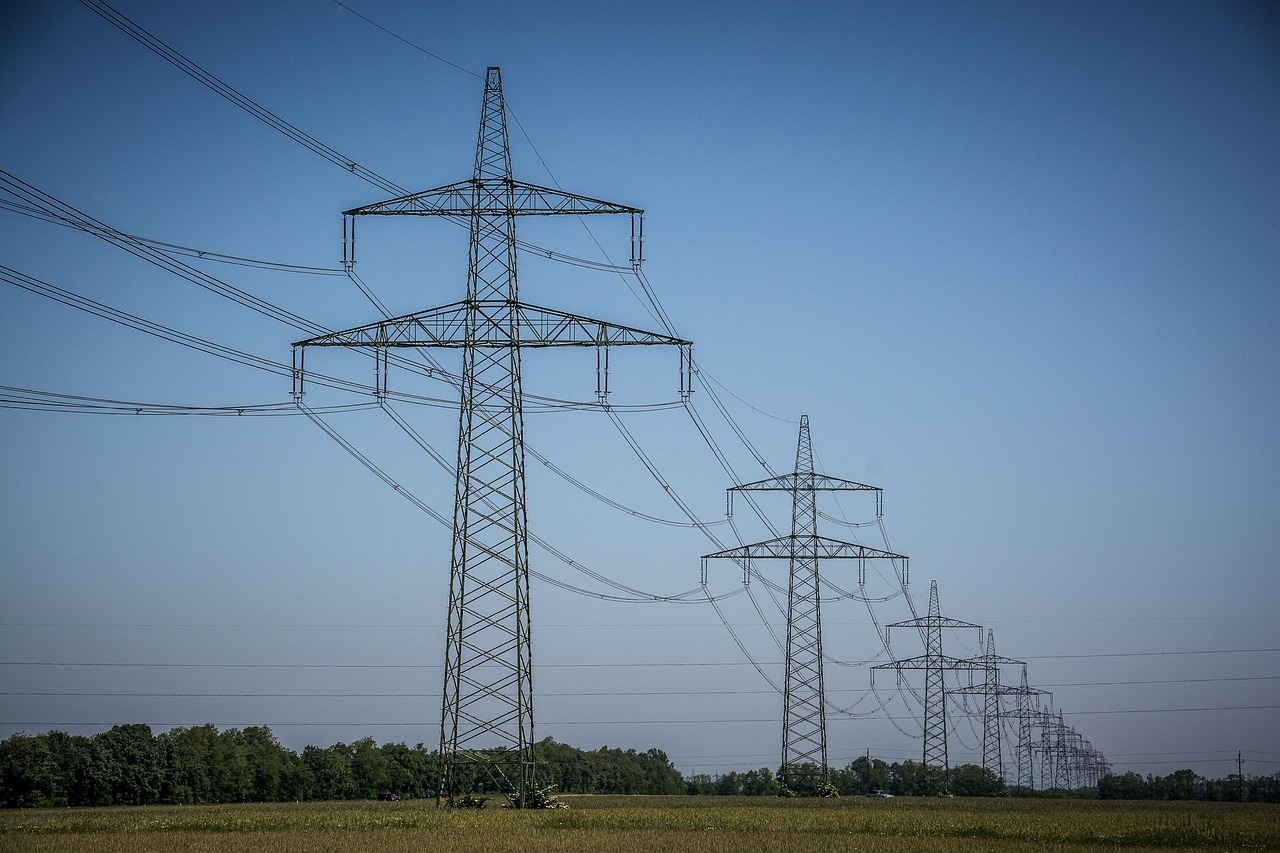
Forms of Resistance
When we think about resistance, it's easy to imagine grand protests or sweeping social movements. However, Foucault's view on resistance is much more nuanced and multifaceted. He believed that resistance is not merely a reaction against power; it is an inherent part of the power dynamic itself. Just as power is everywhere, so too is resistance. This means that in every relationship where power is exercised, there exists the potential for defiance and challenge. Think of it like a dance; where one partner leads, the other has the opportunity to push back, change direction, or even take the lead themselves.
Resistance can manifest in various forms, ranging from overt actions to subtle acts of defiance. For instance, consider the following examples:
- Subtle Acts of Defiance: These might include behaviors like noncompliance, sarcasm, or simply choosing not to conform to societal expectations. Such acts may seem small, but they can accumulate and create significant shifts in power dynamics.
- Artistic Expression: Artists and writers often use their work as a form of resistance, challenging dominant narratives and offering alternative perspectives. Through satire, literature, and visual art, they can provoke thought and inspire change.
- Social Movements: Larger organized efforts, like civil rights movements or feminist activism, represent more overt forms of resistance. These movements mobilize individuals to challenge injustices and demand change on a societal scale.
Foucault also emphasizes the importance of local contexts in shaping forms of resistance. What works in one society or community may not be effective in another. This is because the structures of power are not monolithic; they vary widely across different cultures and institutions. For example, in a highly surveilled environment, resistance might take on more covert forms, while in a more open society, public protests could be the norm.
Moreover, resistance is not always successful, and it can sometimes lead to repercussions. Individuals who challenge power structures may face backlash, including social ostracism or legal consequences. Yet, this does not diminish the significance of their actions. Every act of resistance contributes to a larger dialogue about power and agency, reminding us that the struggle against oppression is ongoing.
In summary, resistance is a vital aspect of Foucault's philosophy. It highlights the dynamic interplay between power and agency, showing that where there is power, there is also the potential for challenge and change. Understanding these forms of resistance allows us to appreciate the complexities of societal interactions and the ongoing fight for justice and equity.
- What is Foucault's view on power? Foucault sees power as a complex network of relationships rather than a fixed entity, emphasizing its pervasive nature in society.
- How does knowledge relate to power? Foucault famously stated that knowledge is power, suggesting that the production of knowledge influences societal structures and individual behavior.
- What are some examples of resistance to power? Resistance can take many forms, including subtle acts of defiance, artistic expression, and organized social movements.
- Why is resistance important? Resistance is crucial as it challenges existing power structures and promotes dialogue about agency and justice.

The Role of Institutions in Power Dynamics
Institutions are the backbone of societal structure, acting as the frameworks within which power is exercised and contested. According to Foucault, institutions such as schools, prisons, and hospitals are not merely passive entities; they are active participants in shaping individual behavior and societal norms. These institutions embody the complex interplay of power relations, influencing how individuals perceive themselves and their roles within society. For instance, schools do not just impart knowledge; they also instill discipline, conformity, and a sense of identity. In this way, education becomes a tool for socialization, molding students into compliant citizens who adhere to societal expectations.
Moreover, prisons serve as a stark representation of power dynamics. They are designed not only to punish but also to rehabilitate, reflecting society's values regarding justice and morality. The way prisoners are treated within these institutions often mirrors broader societal attitudes towards crime and punishment. Foucault's analysis of prisons highlights the concept of surveillance, where the mere presence of authority figures influences behavior. This idea extends beyond physical institutions and permeates everyday life, suggesting that we are constantly under scrutiny, shaping our actions and thoughts.
Hospitals, too, exemplify the role of institutions in power dynamics. They are places where medical knowledge intersects with authority, often dictating what is deemed 'normal' or 'healthy.' The medical gaze, as Foucault describes it, is a form of power that categorizes and normalizes bodies, influencing how individuals understand their health and bodies. This normalization can lead to compliance with medical authority, sometimes at the expense of personal agency. In this context, power is not just repressive; it is productive, creating norms that individuals feel compelled to follow.
In essence, institutions operate as sites of power that shape individual identities and societal structures. They create a framework within which power is both exercised and resisted. Understanding this dynamic is crucial for recognizing how power operates in our lives. To illustrate this further, consider the following table that outlines the various roles institutions play in power dynamics:
| Institution | Role in Power Dynamics | Example |
|---|---|---|
| Schools | Socialization and Discipline | Standardized testing |
| Prisons | Surveillance and Control | Inmate rehabilitation programs |
| Hospitals | Normalization of Health | Diagnostic criteria for mental health |
In conclusion, institutions are not just passive structures; they are active agents in the exercise of power. They shape our understanding of authority, identity, and societal norms, making it essential to critically evaluate their influence in our lives. By recognizing the role of institutions in power dynamics, we can better understand the mechanisms of control and the possibilities for resistance that exist within them.
- What is Foucault's view on power? Foucault sees power as a complex network of relationships that is not solely repressive but also productive, shaping identities and societal norms.
- How do institutions exercise power? Institutions exercise power by regulating behavior, establishing norms, and influencing individual perceptions of authority and identity.
- Can individuals resist institutional power? Yes, Foucault argues that where there is power, there is resistance, and individuals can challenge power structures through various forms of defiance.

The Relevance of Foucault's Ideas Today
In our rapidly evolving world, Michel Foucault's theories on power remain strikingly relevant. As we navigate through complex social structures, his insights offer a lens through which we can examine the intricate relationships that govern our lives. From politics to education, Foucault's ideas challenge us to reconsider the dynamics of authority and resistance that permeate our society. For instance, the rise of social media has transformed how power is exercised and contested, echoing Foucault's assertion that power is not merely repressive but also productive. In this digital age, individuals wield the capacity to challenge traditional narratives and assert their voices, demonstrating that resistance is an inherent aspect of power relations.
Moreover, Foucault's exploration of knowledge and power is particularly pertinent in contemporary discussions around misinformation and the politics of truth. In a world saturated with information, understanding how knowledge is constructed and utilized to maintain power structures is crucial. The concept of regimes of truth becomes vital as we witness the manipulation of facts and the emergence of alternative narratives that shape public perception. This manipulation can lead to a societal landscape where the boundaries between fact and fiction blur, challenging our understanding of reality and influencing our beliefs and actions.
Foucault also emphasized the significance of institutions in shaping individual behavior and societal norms. Today, institutions like schools, prisons, and healthcare systems continue to exert control over individuals, often perpetuating existing power dynamics. For example, the way educational curricula are designed can either empower or marginalize certain groups, reflecting Foucault's idea of normalization. The ongoing debates about educational reform and inclusivity highlight the importance of questioning who gets to define knowledge and who benefits from it.
Furthermore, Foucault's notion of resistance is increasingly relevant in the face of global movements advocating for social justice. Whether it's the fight against systemic racism, gender inequality, or environmental injustice, individuals and groups are continuously challenging established power structures. This resistance can take various forms, from grassroots activism to digital campaigns, illustrating the dynamic nature of power relationships. As Foucault posited, where there is power, there is resistance; thus, understanding the mechanisms of power allows for more effective strategies in the quest for social change.
In conclusion, Foucault's ideas provide a rich framework for analyzing contemporary societal challenges. By examining the interplay between power, knowledge, and resistance, we can better understand the complexities of our world. As we continue to confront issues of authority and governance, Foucault's insights serve as a powerful reminder that the struggle for justice and equality is ongoing and multifaceted.
- What is Foucault's main argument about power?
Foucault argues that power is not a fixed entity but a complex network of relationships that exists in various forms across different contexts. - How does Foucault connect knowledge and power?
Foucault famously stated that knowledge is power, highlighting how the production and distribution of knowledge can influence societal structures and individual behavior. - What are some contemporary examples of Foucault's theories in action?
Current debates on social media influence, educational reform, and social justice movements illustrate the ongoing relevance of Foucault's ideas regarding power and resistance. - How do Foucault's ideas apply to institutions?
Foucault examined how institutions like schools and prisons shape individual lives and societal norms, often reinforcing existing power dynamics.
Frequently Asked Questions
- What is Foucault's view of power?
Foucault redefined power as a complex web of relationships rather than a mere possession held by individuals or institutions. He argued that power is everywhere, circulating through social interactions and shaping behavior, knowledge, and societal norms.
- How does knowledge relate to power according to Foucault?
Foucault famously stated that "knowledge is power," suggesting that the production and dissemination of knowledge influence societal structures and individual behavior. This interplay between knowledge and power creates discourses that define what is accepted as truth in different contexts.
- What are discursive formations?
Discursive formations are frameworks that shape our understanding of reality. Foucault introduced this concept to illustrate how language and discourse influence perceptions, beliefs, and practices, thereby exercising power over individuals and society.
- What are regimes of truth?
Regimes of truth refer to the mechanisms by which societies determine what is considered true or valid. These regimes affect power relations by shaping beliefs and practices, often privileging certain perspectives while marginalizing others.
- How does normalization relate to social control?
Normalization is a concept that illustrates how societal standards regulate behavior. Foucault argued that these norms can restrict individual freedom and enforce conformity, often leading to internalized expectations about how one should behave within society.
- Can power be productive?
Yes, Foucault viewed power as a productive force, not just a repressive one. He believed that power creates identities, norms, and societal roles, influencing how individuals understand themselves and their place within the social structure.
- What does Foucault say about resistance to power?
Foucault posited that where there is power, there is also resistance. He explored how individuals and groups challenge power structures and assert their agency, highlighting the dynamic nature of power relationships in society.
- What forms of resistance exist against power?
Resistance can take many forms, from subtle acts of defiance to organized movements. Foucault emphasized that these acts are crucial in challenging and reshaping power dynamics, illustrating the ongoing struggle for agency and freedom.
- How do institutions function in power dynamics?
Institutions like schools, prisons, and hospitals are vital sites of power that shape individuals' lives and societal norms. Foucault analyzed how these institutions exercise power through regulation, surveillance, and the establishment of social standards.
- Why are Foucault's ideas relevant today?
Foucault's insights remain significant in contemporary discussions about power, governance, and social justice. His theories help us understand modern societal challenges, including issues of surveillance, control, and the construction of knowledge in today's world.

